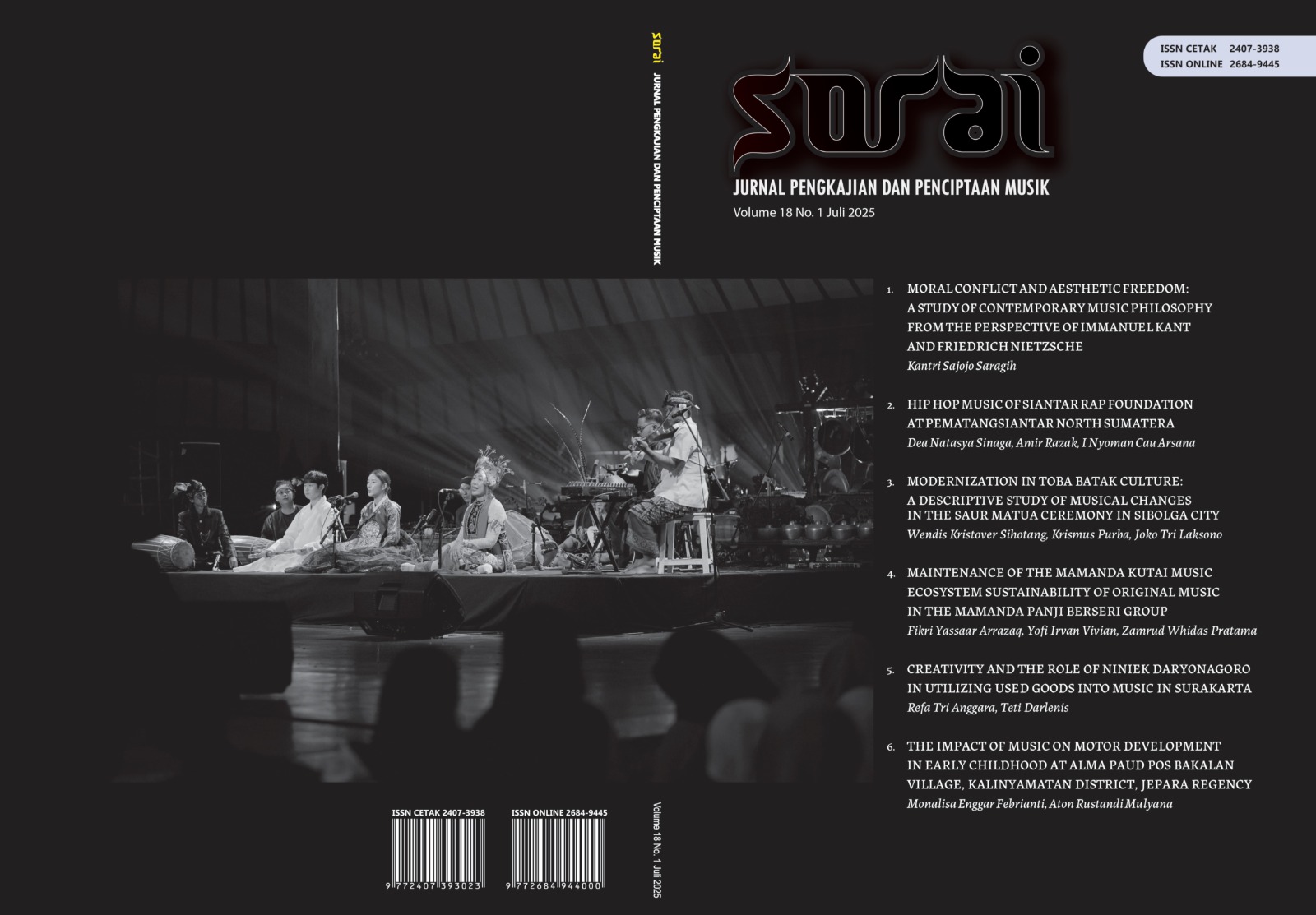MAINTENANCE OF THE MAMANDA KUTAI MUSIC ECOSYSTEM SUSTAINABILITY OF ORIGINAL MUSIC IN THE MAMANDA PANJI BERSERI GROUP
Main Article Content
Abstract
The existence of traditional music in Mamanda Kutai theater art remains well-preserved by the Mamanda Panji Berseri group, as demonstrated by the consistent core patterns of piul and babon, as well as the relatively unchanged use of accompanying instruments. This preservation is particularly noteworthy given the significant developments observed in most other groups. This qualitative study aims to examine how the traditional Mamanda music ecosystem is systematically maintained by the Mamanda Panji Berseri group. The
research employs a combination of desk and field methods, grounded in an ethnomusicological perspective. The findings indicate that various interrelated components within the ecosystem contribute to its sustainability, including learning systems, musicians and communities, contextual and structural frameworks, regulatory support and infrastructure, and the music industry. Furthermore, the study underscores that the role of the traditional Mamanda Kutai musical accompaniment ecosystem within the Mamanda Panji Berseri group still requires further optimization to enhance its long-term sustainability and broader impact.
Downloads
Article Details

This work is licensed under a Creative Commons Attribution-ShareAlike 4.0 International License.
Copyright
Authors who publish to Sorai: Jurnal Pengkajian dan Penciptaan Musik agrees to the following terms:
- Authors retain copyright and grant the journal right of first publication with the work simultaneously licensed under a Creative Commons Attribution License (CC BY-SA 4.0) that allows others to share the work with an acknowledgment of the work's authorship and initial publication in this journal.
- Authors can enter into separate, additional contractual arrangements for the non-exclusive distribution of the journal's published version of the work (e.g., post it to an institutional repository or edit it in a book), with an acknowledgment of its initial publication in this journal.
- Authors are permitted and encouraged to post their work online (e.g., in institutional repositories or on their website) before and during the submission process, as it can lead to productive exchanges, as well as earlier and greater citation of published work.
